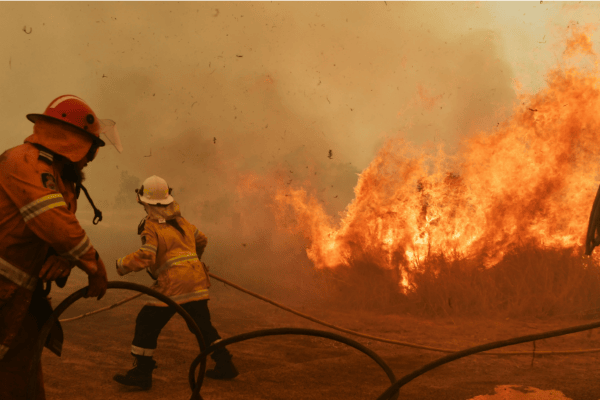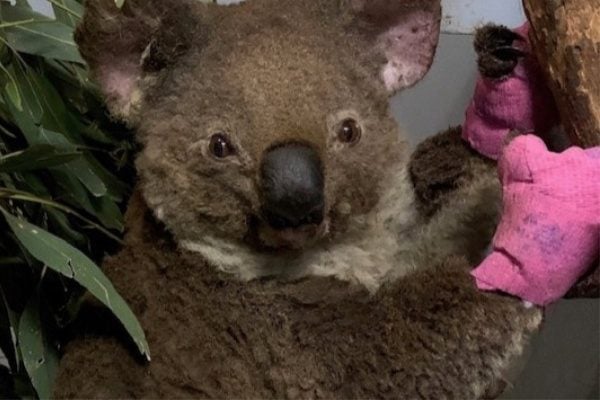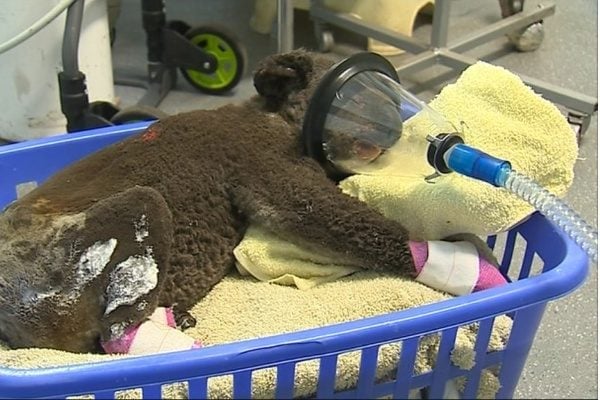
As Australia’s backyard has burned, our koalas have been helpless.
Bushfires engulfed their habitats with an intensity we haven’t seen before. Whole populations of the native animal have been incinerated.
“How many are lost? We’ll never know because they just turn to ash,” Sue Ashton, President of the Port Macquarie Koala Hospital, told Mamamia on Wednesday.
Ashton says that in the case of bushfires, koalas don’t run. They instinctively climb to the top of trees.
“So if fire goes through with intensity, as these ones have, they’re basically incinerated alight. And that’s what’s been happening.”



